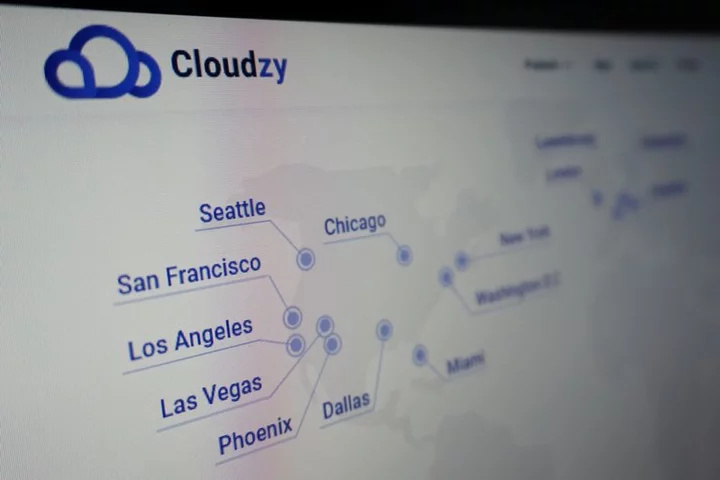What is silent reflux?
The tendency to stuff your face with food is often met with the urgent need to settle your stomach by laying on the couch for hours, especially during the holiday season. However, what some people fail to realise is that sprawling out after a big meal may not soothe your body like you think. Silent reflux, often referred to as laryngopharyngeal reflux (LPR), can potentially be caused by “overeating and lying down just after eating”, according to the UT Southwestern Medical Centre. With Thanksgiving fast approaching, it’s important to be aware of the symptoms and signs of LPR, ensuring you aren’t inadvertently subjecting your body to the condition. UT Southwestern Medical Centre defines LPR as “a condition in which stomach acid flows back up the esophagus [swallowing tube] into the larynx [voice box] and throat.” The name is derived from the inherent form of the condition, which doesn’t cause any symptoms in the chest. When you swallow food, the contents travel down the esophagus past two sphincters, a ring-shaped muscle on the lower and upper portions of the esophagus connected to the stomach. Before the gastrointestinal system digests the food, the sphincters close so the contents aren’t able to come back up the esophagus. “If the sphincter does not close properly, acidic stomach contents can flow back into the esophagus, up to the throat and larynx,” the medical centre states. Potential causes of LPR include alcohol use, tobacco use, “certain food choices” like spicy or fried foods, obesity, overeating habits, clothing that fits tightly around the abdomen, and lying down immediately after food consumption. While the condition doesn’t evoke chest-burning symptoms like other forms of acid reflux, there are a number of other symptoms associated with LPR. Asthma, hoarseness, postnasal drip, lump sensation in the throat, bitter taste in the throat, difficulty swallowing, sore throat sensation, and burning throat sensation are all symptoms of silent reflux. “LPR can be the underlying cause of hoarseness, laryngitis, chronic throat clearing and related symptoms. You might not have typical acid reflux symptoms, like heartburn or indigestion,” the Cleveland Clinic explains. “Symptoms of acid reflux usually affect your lower esophagus, within your chest. But if you have LPR, the reflux has a habit of creeping higher up, into your larynx (voice box) and pharynx [throat].” Certain foods and beverages can cause a breach in the lower esophageal sphincter; coffee, chocolate, mint, garlic, and onions all have the potential to cause LPR. Since there is no single cause of LPR, treatments include lifestyle and diet adjustments. “Some people can solve their LPR with lifestyle adjustments alone,” Cleaveland Clinic suggests. “It takes time for LPR to heal, though, so it may be several months before you can tell if your adjustments are working.” Medications called proton pump inhibitors are also offered to help move the healing process along. Surgery is only necessary in severe cases such as “an obvious defect affecting your esophageal sphincter muscles, like a hiatal hernia,” the Cleveland Clinic states. Read More Shingles symptoms, what causes it and how to treat the virus 13 possible cancer symptoms you should get checked out Salon owner with incurable cancer who lost hair in treatment makes customisable wigs

The tendency to stuff your face with food is often met with the urgent need to settle your stomach by laying on the couch for hours, especially during the holiday season. However, what some people fail to realise is that sprawling out after a big meal may not soothe your body like you think.
Silent reflux, often referred to as laryngopharyngeal reflux (LPR), can potentially be caused by “overeating and lying down just after eating”, according to the UT Southwestern Medical Centre. With Thanksgiving fast approaching, it’s important to be aware of the symptoms and signs of LPR, ensuring you aren’t inadvertently subjecting your body to the condition.
UT Southwestern Medical Centre defines LPR as “a condition in which stomach acid flows back up the esophagus [swallowing tube] into the larynx [voice box] and throat.” The name is derived from the inherent form of the condition, which doesn’t cause any symptoms in the chest.
When you swallow food, the contents travel down the esophagus past two sphincters, a ring-shaped muscle on the lower and upper portions of the esophagus connected to the stomach. Before the gastrointestinal system digests the food, the sphincters close so the contents aren’t able to come back up the esophagus.
“If the sphincter does not close properly, acidic stomach contents can flow back into the esophagus, up to the throat and larynx,” the medical centre states.
Potential causes of LPR include alcohol use, tobacco use, “certain food choices” like spicy or fried foods, obesity, overeating habits, clothing that fits tightly around the abdomen, and lying down immediately after food consumption.
While the condition doesn’t evoke chest-burning symptoms like other forms of acid reflux, there are a number of other symptoms associated with LPR. Asthma, hoarseness, postnasal drip, lump sensation in the throat, bitter taste in the throat, difficulty swallowing, sore throat sensation, and burning throat sensation are all symptoms of silent reflux.
“LPR can be the underlying cause of hoarseness, laryngitis, chronic throat clearing and related symptoms. You might not have typical acid reflux symptoms, like heartburn or indigestion,” the Cleveland Clinic explains. “Symptoms of acid reflux usually affect your lower esophagus, within your chest. But if you have LPR, the reflux has a habit of creeping higher up, into your larynx (voice box) and pharynx [throat].”
Certain foods and beverages can cause a breach in the lower esophageal sphincter; coffee, chocolate, mint, garlic, and onions all have the potential to cause LPR.
Since there is no single cause of LPR, treatments include lifestyle and diet adjustments. “Some people can solve their LPR with lifestyle adjustments alone,” Cleaveland Clinic suggests. “It takes time for LPR to heal, though, so it may be several months before you can tell if your adjustments are working.”
Medications called proton pump inhibitors are also offered to help move the healing process along. Surgery is only necessary in severe cases such as “an obvious defect affecting your esophageal sphincter muscles, like a hiatal hernia,” the Cleveland Clinic states.
Read More
Shingles symptoms, what causes it and how to treat the virus
13 possible cancer symptoms you should get checked out
Salon owner with incurable cancer who lost hair in treatment makes customisable wigs









